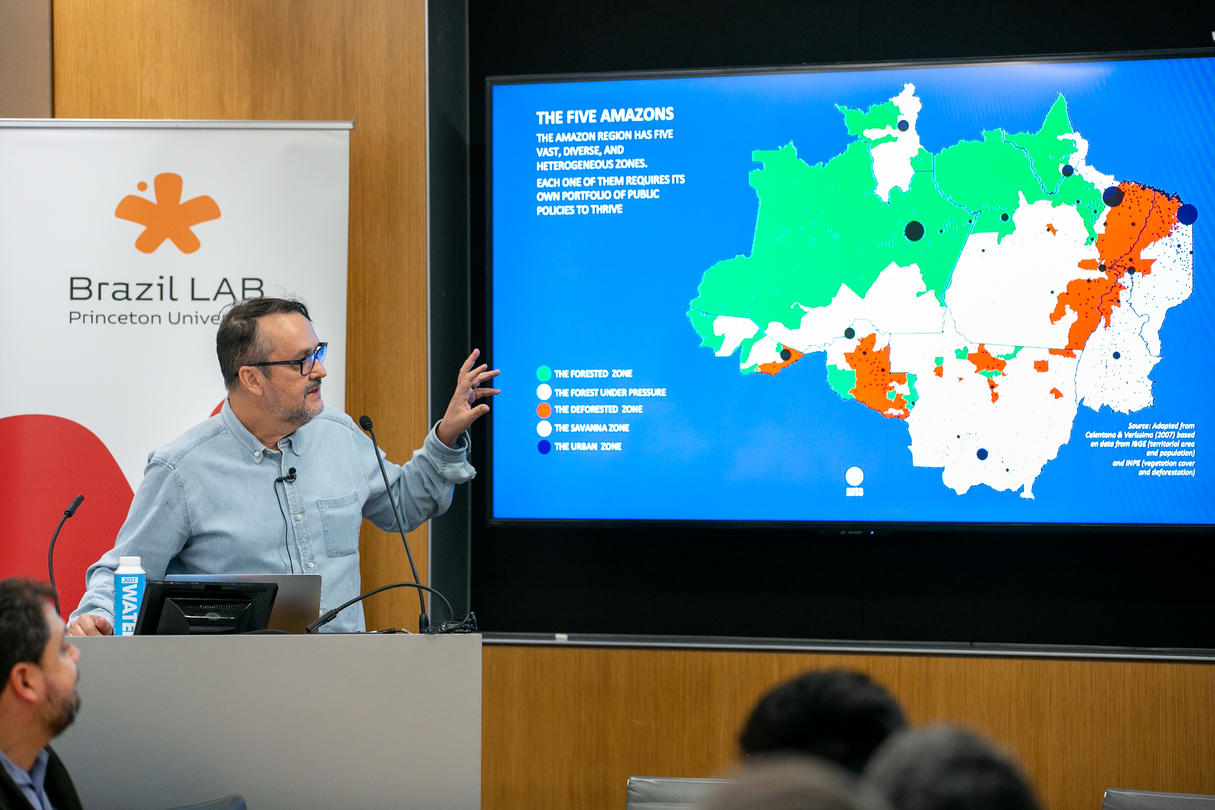Brazilian environmentalist Veríssimo asks ‘Can Lula save the Amazon?'

Beto Veríssimo, senior researcher at Imazon, a “think-and-do” think tank based in the Brazilian Amazon, joined Matias Spektor, professor at the School of International Relations at Fundação Getulio Vargas, for “Brazil is Back,” a debate about the future of public policy and sustainability in Brazil following the election of Luiz Inácio Lula da Silva as president. The event was part of Princeton University’s Brazil LAB’s spring 2023 colloquium.
Veríssimo, a Brazil LAB affiliate scholar, currently leads Amazônia 2030, a collaboration among Brazilian researchers that explores conservation and socio-economic leapfrogging initiatives for the region. Veríssimo is considered one of Brazil’s most influential environmentalists, and has developed strategies and partnerships to reduce or eliminate deforestation in the Brazilian Amazon. Spektor is a visiting scholar with Princeton’s Reimagining World Order research community, which seeks to foster debate and collaboration among a diverse range of scholars over the character and future of global order.
“Brazil is Back” was cosponsored by the Department of Anthropology, the High Meadows Environmental Institute, the Program in Latin American Studies, and the Department of Spanish and Portuguese.
